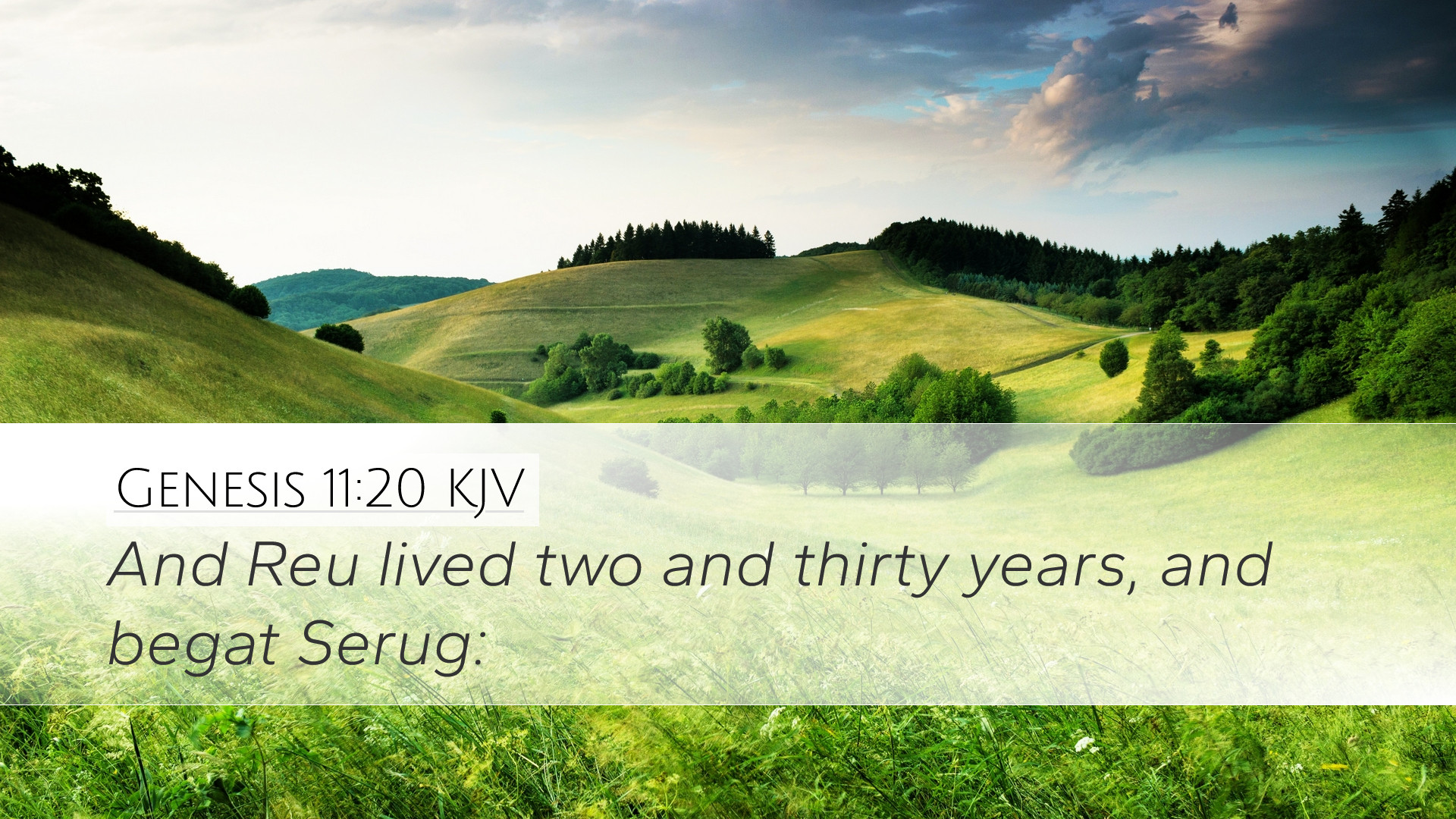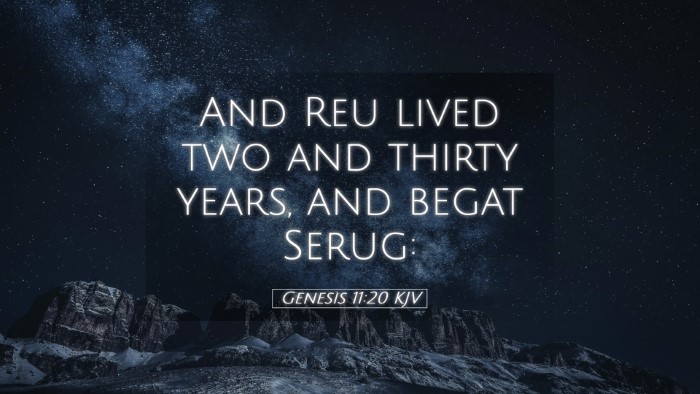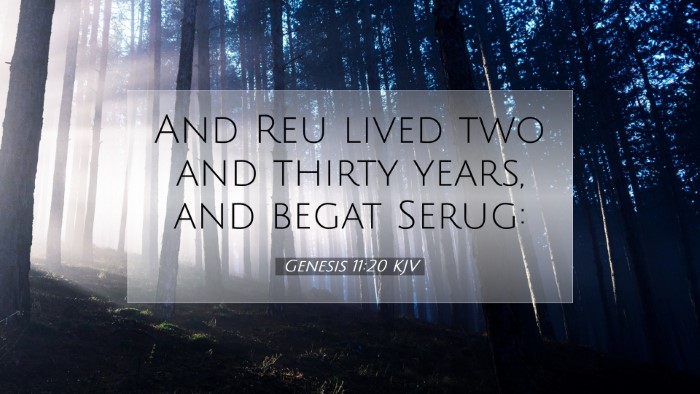Commentary on Genesis 11:20
Verse: "And Reu lived two and thirty years, and begat Serug."
Introduction
This verse, found in the genealogical account of Genesis, highlights the lineage following the patriarchal line post-Flood. It specifically mentions Reu, whose contribution to the lineage is succinctly summarized. Understanding the significance of this verse involves delving into the context, the themes of genealogy in Genesis, and the theological implications of this narrative.
The Importance of Genealogies
Genealogies in the Bible serve multiple purposes:
- Historical Record: They provide a historical context for the people of Israel, affirming their identity and lineage.
- Theological Significance: Genealogies trace the line of promise, connecting the patriarchs to God's covenantal relationship with humanity.
- Literary Function: They often introduce significant figures and themes that will recur throughout the biblical narrative.
Understanding Reu
Reu is a name that appears in the genealogy of Shem, Noah's son. Matthew Henry comments on the meaning of Reu's name, which can denote "friend" or "companion." This name may suggest a relational theme in the narrative, as it introduces the character of Serug, his son, thereby emphasizing the importance of connections within families.
Age and Generational Context
The mention of Reu living “two and thirty years” before fathering Serug emphasizes the timeline of generations. Albert Barnes indicates the generational signification here; the ages listed are not mere numbers but reflections of God's providential timing in the unfolding plan of salvation. Each generation has its significance in the divine timeline leading to significant biblical events.
The Birth of Serug
In the mention of Serug, we observe the continuation of the covenant promise. Adam Clarke notes that the naming of Serug marks an essential transition within the genealogy as he is linked with later notable figures—most notably Abraham. This connection reiterated the theme of how God's plans often unfold through successive generations.
The Role of Patriarchs
Each patriarch mentioned leads us closer to the establishment of Israel as a nation. The brief account suggests that the lives of these men were deeply interwoven into the theological fabric of God's covenant. Reu, like his ancestors, played a crucial role in this lineage, even if the narrative itself is spare on details.
Theological Implications
The genealogy encapsulates God's faithfulness through generations, revealing a God who intricately wove specific individuals into His redemptive history. Scholars note that every name, every year, contributes to the overarching narrative of redemption culminating in the person of Christ. This resonates with the New Testament genealogy of Christ which emphasizes Jesus as the fulfillment of the promises outlined in the Old Testament.
Conclusion
Genesis 11:20 might seem like a simple record of a person's age and offspring, but it stands as a testament to the importance of genealogical records in the biblical narrative. Engaging with this verse encourages pastors, students, and scholars alike to reflect on the depth of God’s sovereign plan as it unfolds through history. Understanding such verses can deepen theological understanding of God's engagement with humanity.


